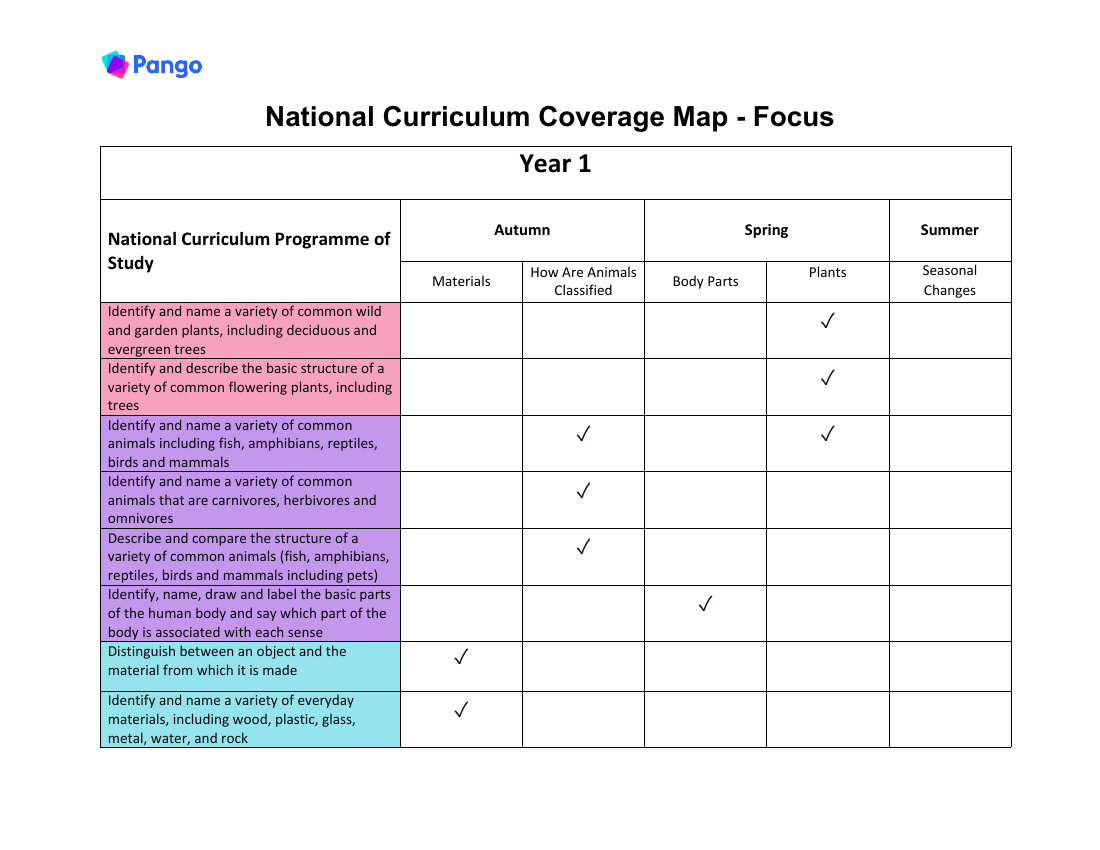Focus Science National Curriculum Coverage

Science Resource Description
The National Curriculum in England provides a comprehensive framework for teaching science across different year groups. In Year 1, students begin their scientific journey by exploring a variety of common plants and animals, understanding the basic structure of flowering plants and trees, and identifying different types of animals including fish, amphibians, reptiles, birds, and mammals. They delve into the categorisation of animals by their diets as carnivores, herbivores, or omnivores, and learn about the human body, recognising body parts and their associated senses. The curriculum also introduces young learners to materials, guiding them to identify, name, and describe the properties of everyday materials such as wood, plastic, glass, metal, water, and rock. Observing seasonal changes and weather patterns forms part of their study, too.
As students progress to Year 2, they continue to build on their knowledge by observing the growth of seeds and bulbs, and understanding the requirements for plant health. The curriculum covers the basic needs of animals for survival, the importance of exercise, a balanced diet, and hygiene for humans. Children also start to explore the suitability of various materials for different purposes and learn how the shapes of solid objects can be altered. They investigate living things in their habitats, including microhabitats, and understand simple food chains. In Year 3, the focus shifts to include topics like plant life cycles, human nutrition, the human skeleton and muscles, rock classification, and the formation of fossils. Light, shadows, magnets, and forces are also key topics, with students learning about light reflection, magnetic attraction and repulsion, poles of magnets, and how forces can act at a distance.
